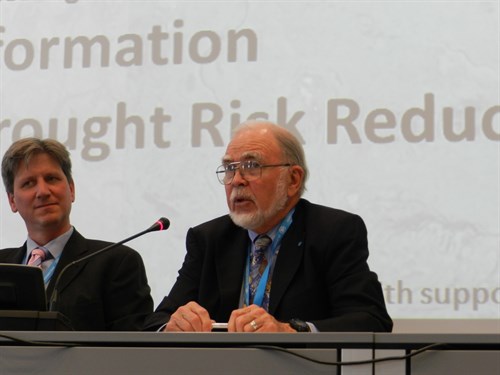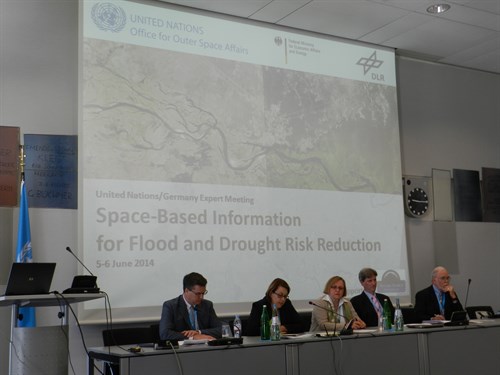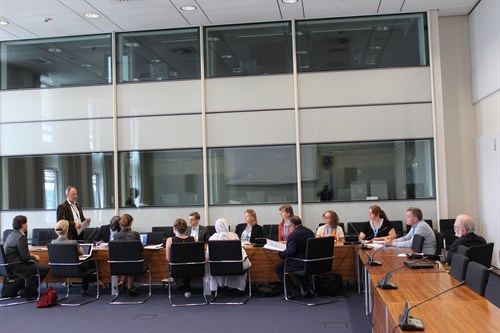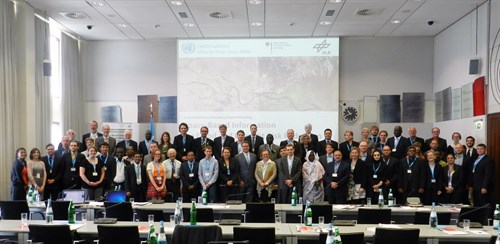SWF Sponsors, Participates in UN Expert Meeting on Flood and Drought Risk Reduction
Thursday, June 5, 2014
With almost 60 experts from a variety of disciplines attending and participating, the United Nations Office for Outer Space Affairs (UNOOSA) organized and hosted an expert meeting on using space-based information for reducing the risks from and responding to floods and droughts. UN-SPIDER, the United Nations Platform for Space-Based Information for Disaster Management and Emergency Response, held the meeting at the UN campus in Bonn, Germany, on June 5 and 6, to focus on floods and droughts, two extreme weather occurrences that regularly bring disastrous consequences for human and environmental security around the world. The event was co-organized by UNOOSA, the German Aerospace Center (DLR), the German Federal Ministry for Economic Affairs and Energy (BMWi), and Secure World Foundation.

The goals of this meeting were to inform experts on recent advances in space technologies and applications in flood and drought risk management, and to exchange experiences and lessons learned in the use of these resources. Additionally, the meeting aimed to develop a strategy to promote the use of space-based information in the upcoming World Conference on Disaster Risk Reduction, to be held in Sendai, Japan in March 2015 (http://www.wcdrr.org/), and contributions to the Post 2015 framework for disaster risk reduction (Hyogo Framework for Action, or HFA2). The meetings outcomes also feed into UN-SPIDER outreach activities such as capacity building, technical advisory support, and the online Knowledge Portal.
Sessions and presentations focused on space technologies for flood risk reduction and drought risk reduction. Regional experts offered examples of infrastructures, technologies, and case studies on how their countries responded to specific disasters.

One aspect of UN-SPIDER expert meetings that makes them unique is that the experts do not merely attend presentations, but instead actively participate in discussion sessions in small groups, interacting and learning from other attendees, and providing feedback to the UN. This workshop featured multiple discussion sessions on topics related to the potential uses and limitations of Earth observations for hazard and vulnerability assessment, lessons from past experiences on using geospatial information for floods, and improvements to the online UN-SPIDER knowledge portal (http://www.un-spider.org/), which includes online data sets and the space application matrix.

Secure World Foundation assisted UNOOSA in this workshop by mobilizing governmental experts from Mexico and Sudan, and co-sponsoring the event. SWF’s Ray Williamson and Chris Johnson also attended. SWF Senior Advisor Dr. Williamson gave a presentation on bridging the gaps between satellite data and disaster management infrastructures and organizations. He also briefed the expert meeting on a disaster response workshop co-organized with the Regional Centre for Space Science and Technology Education for Latin America and the Caribbean (CRECTEALC) held last May in Tonantzintla, Puebla, Mexico.


 Share
Share